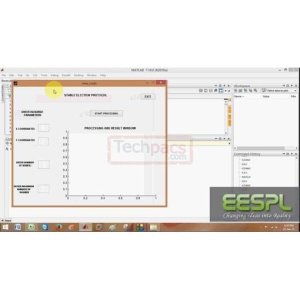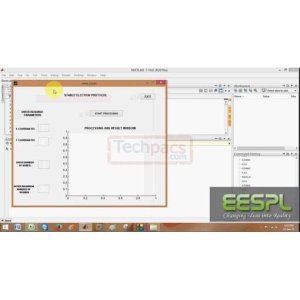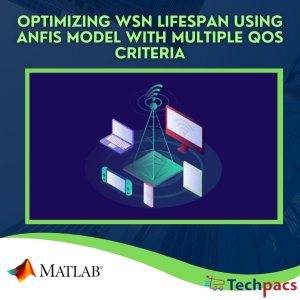WSN Clustering with SEP Protocol for Energy Efficiency
Problem Definition
PROBLEM DESCRIPTION:
One of the major challenges in Wireless Sensor Networks (WSNs) is the efficient utilization of battery power due to small power batteries used in the sensors. This leads to a limited lifespan of the network and frequent maintenance requirements. Clustering has been identified as an effective technique to extend the lifetime of sensor networks by reducing energy consumption.
However, the selection of cluster heads in a cluster is crucial for the overall performance of the network. The use of Stable Election Protocol (SEP) for clustered heterogeneous wireless sensor networks has shown promise in improving energy efficiency and extending network lifespan.
Despite the benefits of SEP, there is a need to further study the sensitivity of the SEP protocol to heterogeneity parameters capturing energy imbalance in the network. Understanding how different levels of energy heterogeneity impact the performance of SEP can help in designing more efficient and sustainable WSNs.
Therefore, there is a need for research and development in the area of Energy Conscious Protocol Design for Throughput Enhancement in WSNs, specifically focusing on the sensitivity of SEP to heterogeneity parameters and the impact of energy imbalance on network stability and performance.
Proposed Work
The proposed work titled "Energy Conscious Protocol Design for Throughput Enhancement in WSN" focuses on the efficient utilization of battery power in Wireless Sensor Networks (WSNs) through the implementation of the Stable Election Protocol (SEP). Clustering techniques are employed to extend the lifetime of sensor networks by reducing energy consumption, with SEP assigning cluster heads based on weighted election probabilities determined by the remaining energy of each node. The project aims to study the sensitivity of the SEP protocol to heterogeneity parameters capturing energy imbalance in the network, with the analysis revealing that SEP results in a longer stability region for higher values of extra energy brought by more powerful nodes. This research falls under the categories of M.Tech | PhD Thesis Research Work, MATLAB Based Projects, and Wireless Research Based Projects, with subcategories including MATLAB Projects Software, Energy Efficiency Enhancement Protocols, and WSN Based Projects.
The modules used for implementation include Matrix Key-Pad, Introduction of Linq, Opto-Diac & Triac Based AC Motor PWM Drive, and Wireless Sensor Network. By exploring the effectiveness of SEP in enhancing throughput while maintaining energy efficiency in WSNs, this project contributes valuable insights to the field of wireless communication and sensor networks.
Application Area for Industry
This project on "Energy Conscious Protocol Design for Throughput Enhancement in WSN" can be applied in various industrial sectors such as smart manufacturing, smart agriculture, environmental monitoring, and building automation. In the manufacturing industry, the implementation of this project can help in optimizing energy consumption in machinery and equipment, leading to cost savings and increased productivity. In the agriculture sector, the use of Wireless Sensor Networks with energy-efficient protocols can aid in monitoring soil conditions, water usage, and crop health, improving yield and reducing resource wastage. For environmental monitoring applications, the project can enable the deployment of sensor networks in remote locations for tracking air quality, pollution levels, and wildlife habitats, contributing to conservation efforts. In building automation, the project's proposed solutions can enhance energy management systems for lighting, heating, and cooling, promoting sustainability and reducing carbon footprint.
The challenges faced by industries in maintaining efficient energy usage and network stability can be addressed by the implementation of the Stable Election Protocol (SEP) and clustering techniques as outlined in the proposed work. By studying the sensitivity of the SEP protocol to energy heterogeneity parameters, industries can design more effective and sustainable Wireless Sensor Networks that extend network lifespan and reduce maintenance requirements. The benefits of implementing these solutions include improved energy efficiency, longer network stability, enhanced throughput, and increased reliability in data transmission. Overall, the project's findings provide valuable insights for industries looking to optimize their operations through the utilization of energy-conscious protocols in Wireless Sensor Networks.
Application Area for Academics
The proposed project on "Energy Conscious Protocol Design for Throughput Enhancement in WSN" holds significant relevance for MTech and PhD students conducting research in the field of wireless sensor networks (WSNs). By focusing on the implementation of the Stable Election Protocol (SEP) to address the challenge of efficient battery power utilization in WSNs, the project offers a platform for innovative research methods, simulations, and data analysis for dissertation, thesis, or research papers. MTech and PhD students can utilize the code and literature of this project to explore the sensitivity of the SEP protocol to heterogeneity parameters capturing energy imbalance in the network, thereby gaining insights into designing more efficient and sustainable WSNs. The project covers technology domains such as MATLAB-based projects, energy efficiency enhancement protocols, and WSN-based projects, offering a comprehensive framework for field-specific researchers to conduct in-depth investigations. By studying the impact of energy heterogeneity on network stability and performance, students can contribute to the advancement of wireless communication and sensor networks.
Additionally, the future scope of this project includes further research on optimizing SEP for WSNs and exploring new energy-conscious protocol designs for enhanced throughput.
Keywords
Research, Development, Energy Conscious Protocol Design, Throughput Enhancement, Wireless Sensor Networks, WSN, Battery Power, Stable Election Protocol, SEP, Energy Efficiency, Clustering, Heterogeneity Parameters, Energy Imbalance, Network Stability, Performance, M.Tech Thesis, PhD Thesis, MATLAB Based Projects, Wireless Research, MATLAB Projects Software, Energy Efficiency Enhancement Protocols, WSN Based Projects, Matrix Key-Pad, Linq, Opto-Diac, Triac Based AC Motor PWM Drive, Wireless Sensor Network, Communication, Sensor Networks, MATLAB, Mathworks, Wimax, Manet, Linpack, LEACH, HEED, PEGASIS, Localization, Networking, Routing.
| Shipping Cost |
|
No reviews found!


























































No comments found for this product. Be the first to comment!